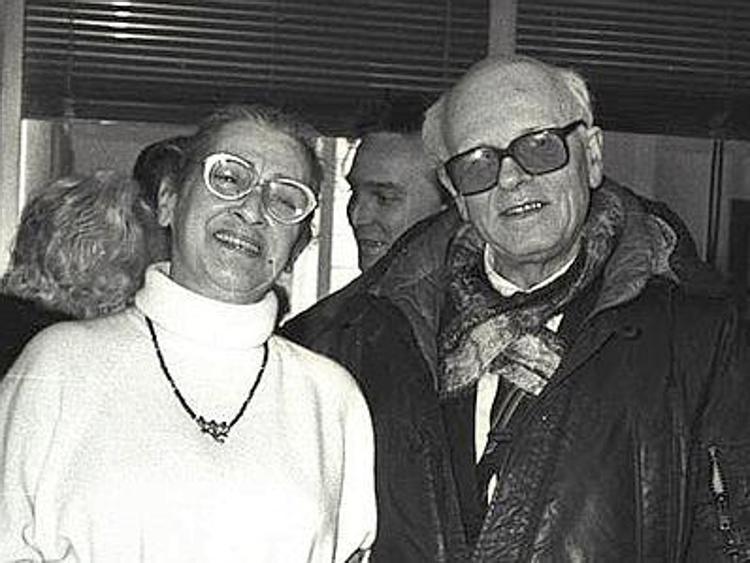

Andrei Sakharov is the memory the Russian people have forgotten, the moral leader they have lost too soon. In the year that marks the centenary of his birth, not many people remember him in his country.
The rational, critical and Western oriented soul seems to have left few traces. He certainly did not leave any in the regime, though it still used the other great dissident of the Soviet era, Aleksandr Solzhenitsyn, as a reference, but not even in civil society, crushed by a power that increasingly resembles that with which Sakharov was confronted.
The ideas of the Hero of Socialist Labour in the USSR (three times, in 1953, in 1956 and in 1962), awarded with the medals of Stalin and Lenin, who in the 1970s became the leading and voice of dissidents, and opposed the invasion of Afghanistan, do not resonate in civil society in the time of Vladimir Putin.
The father of the thermonuclear bomb, then Nobel Peace Prize winner, the exiled, the pardoned, the leader of the opposition to the CPSU, has been relegated to a history that few in his country seem to want to know, let alone use. One of the reasons is “his name not being in the school books", Irina Scerbakova explained to Adnkronos. She is an historian and head of the educational programs for young people at Memorial, the organization for the recovery of the memory of repression victims and for the defence of civil rights that Sakharov helped founding in the late 1980s, and of which he was honorary president. The organization has been on the list of groups considered 'foreign agent' for five years and now, following a new wave of represion, there are high chances it will be unable to carry out its activities.
Russia’s protest movement over the past decade has never mentioned Sakharov. No one chanted his name in protest marches, although sometimes in Moscow they paraded in the avenue named after him, Prospekt Sakharova: this, Scerbakova emphasizes, is the establishment’s "only formal tribute" to the Nobel Peace Prize that "was accepted, but not his objectives and he was not accepted in the official memory of the country".
He is neither a symbol nor a reference for the activists who identify with Aleksei Navalny, "too focused on corruption and in any case with little following in the country". In addition, among the few political figures who turned to his teachings was another former physicist and politician, Boris Nemtsov, killed in front of the Kremlin on February 27, 2015.
"On the one hand, Russia lives in a dramatic present, and on the other in an indifferent, neutral present", said Piero Sinatti in an interview with Adnkronos. One of the most attentive observers of the Soviet Union and Russia as a journalist for the Gazzetta del Popolo, Stampa sera and then for Sole 24 ore, Sinatti continues to follow "the opposition against Putin's regime" with great attention, and observed there is no one who references these figures from the past, including Navalny. The reasons? Together with the Soviet Union, "an entire system was destroyed", including its culture and leading figures.
Sakharov "is not remembered, except by a small part of society that continues to regard him as a leading figure”, Scerbakova said. "He did not have any official charge, not in history programs. He died too early, when the official opposition in our country began to form. His contribution to politics was in the years of Perestroika, which everyone in Russia considers as a cruel period they want to forget". He could have been the leader of the opposition, the critical voice, the moral authority that we lack", the historian added, specifying however that when Russia began transforming into a dictatorship, "things started to change and the interest in Sakharov returned", also thanks to this anniversary. Sinatti agrees: “Had Sakharov survived, his voice would have been heard".
"He was one of the most important figures of Russian culture of the twentieth century", Francesca Gori, President of Memorial Italia, said at the conference "One hundred years of Andrei Sakharov. The dissident scientist who changed the twentieth century", organized by Memorial together with the Gramsci Foundation and the Circolo Fratelli Rosselli Foundation, in collaboration with the Sakharovskij Center in Moscow. Sakharov is important "not only for his work as a physicist, but also for his political commitment. His ideas on peace, disarmament, defence and the advancement of civil and human rights, against any dictatorship, for the amnesty of all political prisoners, are extremely relevant even today".
Among the most important elements of his legacy, is the "indissoluble link" between peace, progress and human rights of which he spoke in the speech he was not authorized to make directly. His wife Elena Bonner read it for him, at the award ceremony for the Nobel Peace Prize in Oslo, in 1975. Never before has an issue been so relevant in a country that, in addition to trampling on its citizens rights, has also halted its economic growth and in which leadership gathers consensus through military action.
A country, Russia, where memory is once again being persecuted. With the sentencing, last year, to 13 years in prison of Memorial historian Yuri Dmitriev, engaged in the reconstruction of the repression in Karelia. With the revival of Stalin, albeit only for his role in the Great Patriotic War. Alternatively, with that of Henrich Yagoda, one of the protagonists and enforcers of terror, whose portrait stood out, in front of the judge and behind the accused, in the makeshift courtroom where the hearing for Navalny’s pre-trial detention was held, on his return to Russia last January.